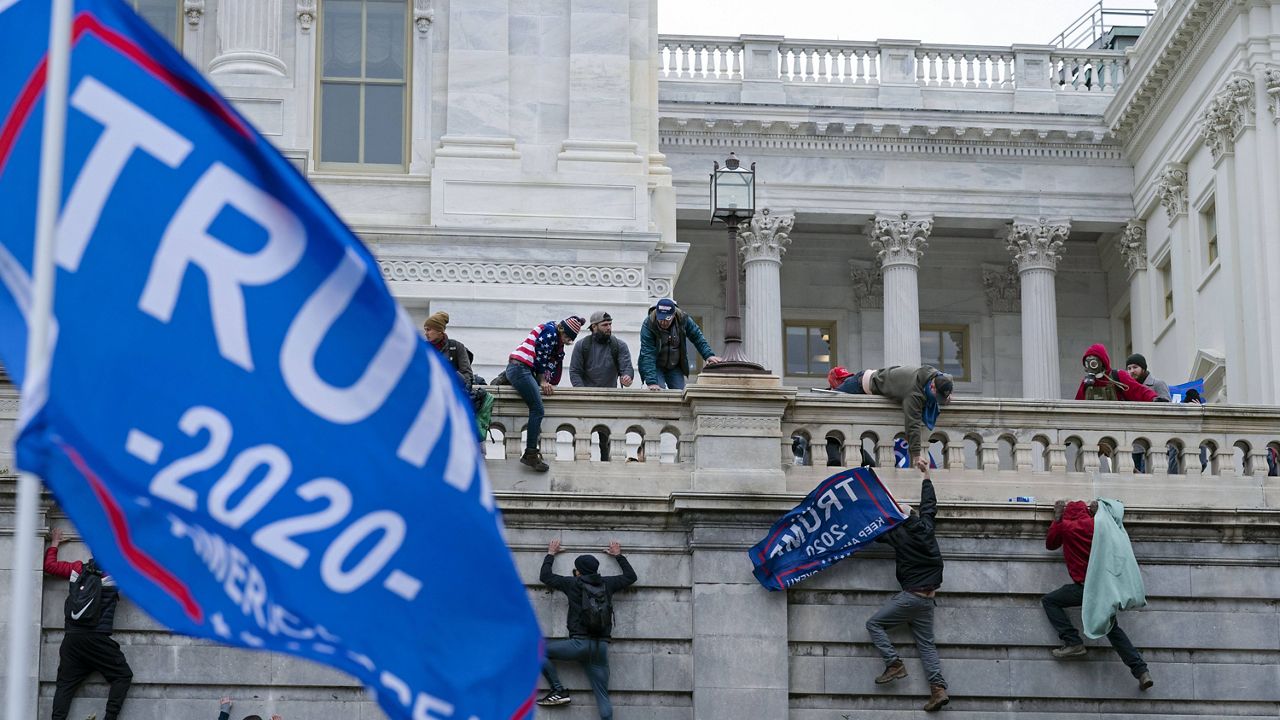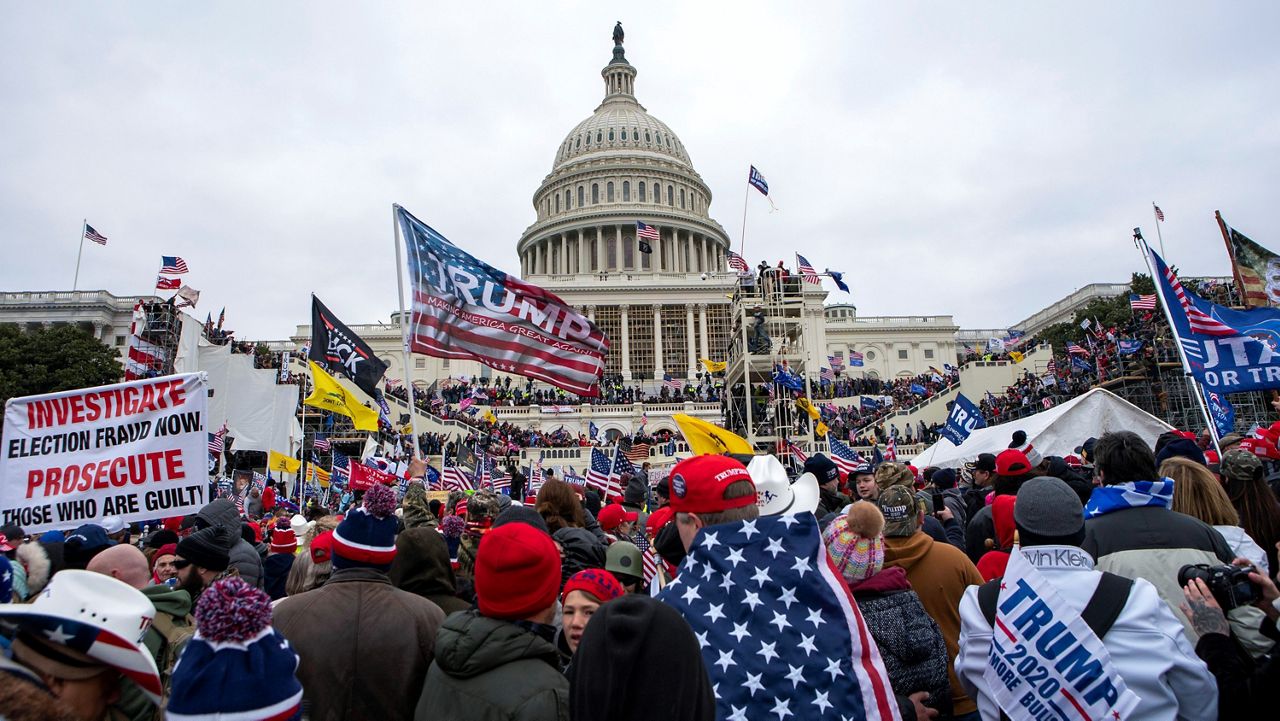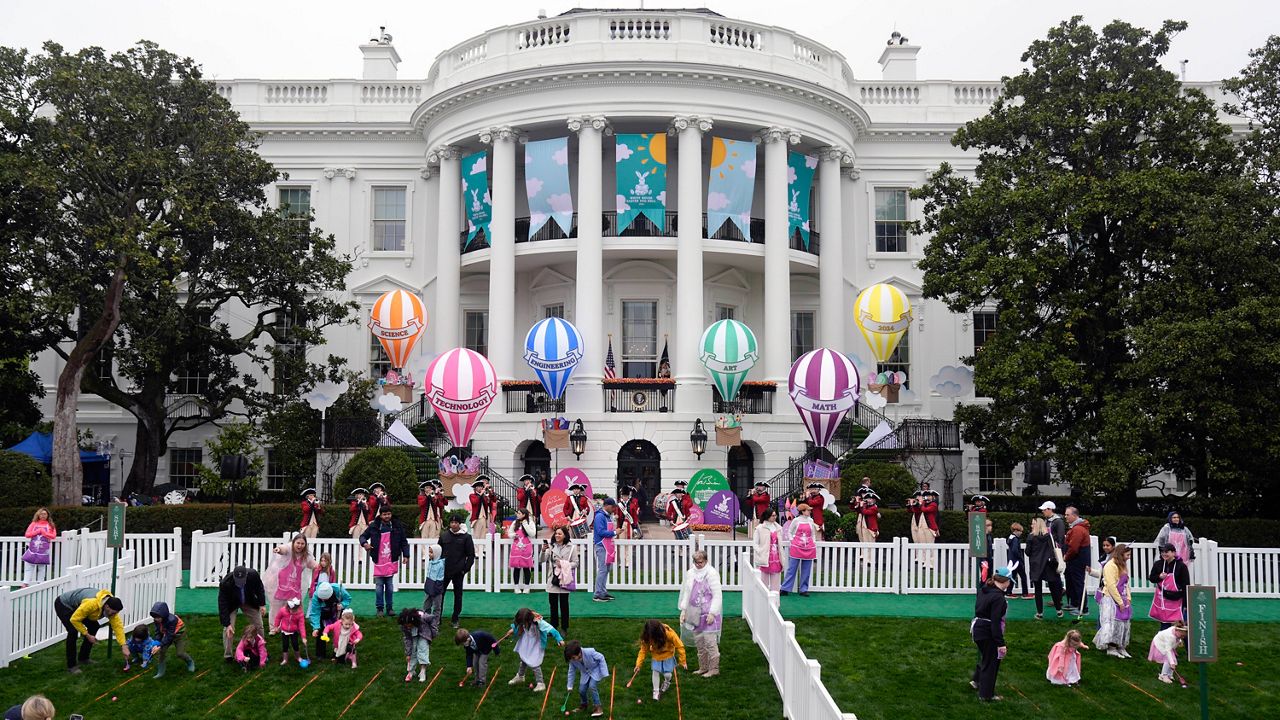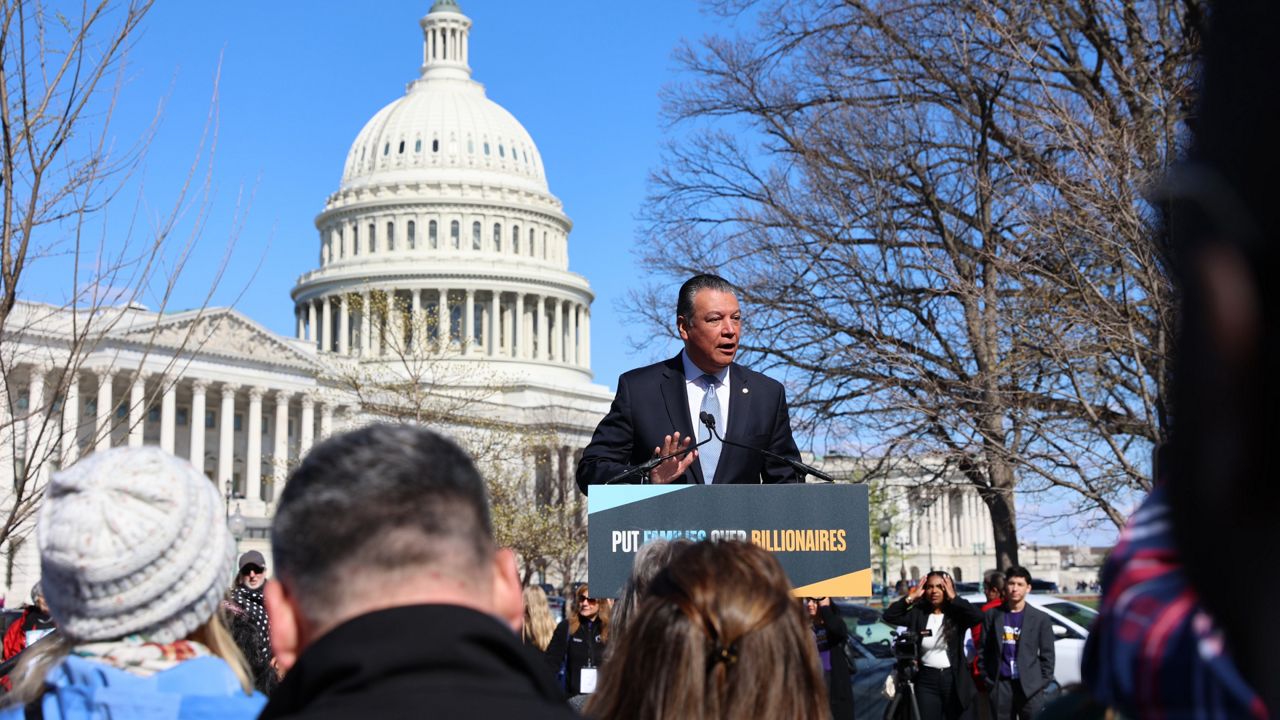A Texas man who joined the mob that stormed the U.S. Capitol on Jan 6. was sentenced Monday to 45 days behind bars even though prosecutors weren’t seeking jail time, after the judge blasted comparisons between the riot that day and the Black Lives Matter protests over racial injustice.
U.S. District Judge Tanya Chutkan called it a false equivalence “to compare the actions of people protesting, mostly peacefully, for civil rights” to the mob that “was trying to overthrow the government.” She said doing so “ignores the very real danger that the Jan. 6 riots pose to the foundation of our democracy.”
The judge’s remarks in the case against Matthew Mazzocco of San Antonio came days after another judge in Washington’s federal court suggested that the Justice Department was being too hard on the Jan. 6 defendants when compared to the people arrested during the protests after George Floyd’s murder.
Judge Trevor McFadden, an appointee of former President Donald Trump, questioned Friday why federal prosecutors had not brought more cases against those who had taken part in the 2020 summertime protests and said the Justice Department “would have more credibility if it was even-handed in its concern about riots and mobs in this city.” He sentenced Danielle Doyle of Oklahoma to probation even though prosecutors had recommended two months of home confinement.
Chutkan, who was appointed by former President Barack Obama, said she “flatly” disagreed with the suggestion raised by “some people” that the Jan. 6 defendants were being treated unfairly. In fact, she said she believes those who joined the pro-Trump mob were being treated more leniently than many other defendants.
She noted the vast majority of rioters were not arrested on Jan. 6 but were allowed to return home and that many defendants, like Mazzocco, were charged only with misdemeanors despite what she called the “premeditated decision to come to the District to try to stop the peaceful transfer of power.”
Some Jan. 6 defendants and their Republican allies have claimed that the Justice Department has treated the Capitol rioters harshly because of their political views, while those who caused violence in the wake of Floyd’s killing were given leniency. But an Associated Press analysis of court documents in more than 300 federal cases stemming from the racial injustice protests showed that dozens of people have been convicted of serious crimes and sent to prison.
Prosecutors had been seeking three months of home confinement for Mazzocco, who pleaded guilty to a single misdemeanor charge of demonstrating in the Capitol. Mazzocco spent 12 minutes inside the building and posted a selfie on Facebook after the riot with the caption: “the capital is ours!” Assistant U.S. Attorney Kimberley Nielsen noted that he was among the first 10 Jan. 6 defendants to accept responsibility for his actions.
In a letter Mazzocco’s attorney read to the judge, he called his decision to enter the Capitol “one of the most foolish and impulsive decisions” of his life. He told the judge his actions have taken a massive toll on him and that he has received “countless death threats.”
“Since that day, I’ve lived with the feeling of shame, sorrow and remorse, not because I’m going through legal troubles, but because I’m seeing the country I love so dearly divided like never before,” Mazzocco wrote.
The judge said Mazzocco’s participation in the riot warrants time behind bars even though he didn’t steal or destroy anything or hurt anyone at the Capitol. She said that “the rioters who committed violence that day did so because they had the safety of numbers,” thanks to those like Mazzocco.
“Mr. Mazzocco did not go to the United States Capitol out of any love or support for our country, he went there to support one man who he viewed had the election taken from him,” she said.
About 90 Jan. 6 defendants have pleaded guilty, mostly to low level misdemeanor charges, but only a handful have received their punishments so far. Two other defendants, who pleaded guilty to a different misdemeanor charge of disorderly conduct, were also sentenced last week to 45 days behind bars.








